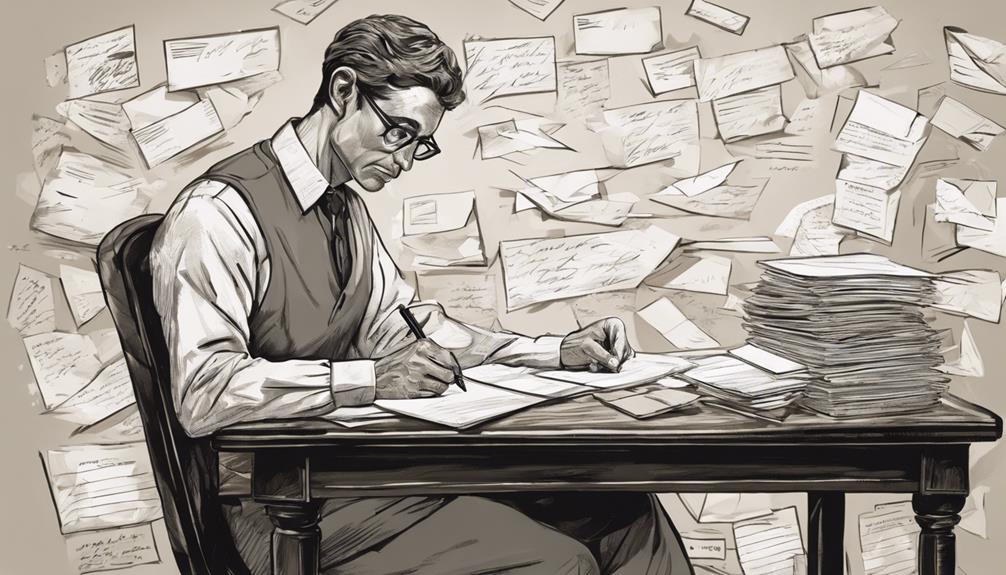When a narcissist sees you looking good, it's like stepping into the lion's den. Their reactions can range from subtle hints of jealousy to a full-blown show of admiration.
As we navigate these encounters, it's important to decipher the underlying motives behind their actions. So, what happens when a narcissist catches a glimpse of your shine? Let's discover the three intriguing reactions they might reveal when faced with your newfound confidence.
Key Takeaways
- Narcissists may react with jealousy and envy when seeing others look good.
- They might use manipulative tactics to assert dominance and control in such situations.
- Maintaining power dynamics, they may belittle or undermine to feel superior.
- Recognizing their need for validation and admiration is crucial in interactions.
Jealousy and Envy
When we observe narcissists reacting to our well-groomed appearance, their emotional response is often rooted in feelings of jealousy and envy. Narcissists, with their fragile egos and insatiable need for control, are deeply affected by the attention and praise we receive for our positive image, especially in the world of social media. Their narcissistic tendencies make them seek constant validation and admiration, and witnessing others shine brightly triggers their own feelings of envy and inadequacy. This envy stems from a sense of superiority they try to maintain and their fear of being overshadowed.
In their attempts to cope with these emotions, narcissists may resort to manipulative behaviors, such as narcissistic abuse or attempts to diminish our achievements to uphold their facade of dominance. Understanding the roots of their jealousy and envy can provide us with insights into interactions with narcissists while safeguarding our self-worth. By recognizing their struggles with insecurity and craving for validation, we can approach such situations with empathy and a strategic mindset.
Attempted Belittling

Upon witnessing our well-groomed appearance, narcissists may resort to attempted belittling as a means to assert dominance and elevate their own sense of superiority. This belittling behavior is a tool they use to maintain control over others and diminish their self-esteem. By making negative comments or jokes about our looks, narcissists aim to undermine our confidence and create a power dynamic where they feel superior. These attempts at belittling are deeply rooted in the narcissist's own insecurities and their constant need for validation and power. It is essential to recognize that these actions stem from the narcissist's internal struggles rather than any fault of our own. By not internalizing these belittling behaviors, we can protect our self-worth and assert our own confidence in the face of such attempts to diminish us.
| Keywords | Definition | Example |
|---|---|---|
| Belittling | To make someone feel small or unimportant | Making jokes about our appearance |
| Appearance | The way someone looks or presents themselves | Commenting negatively on our outfit |
| Control | Exercising power or authority over someone | Trying to dictate how we should dress |
| Self-Esteem | Confidence in one's own worth and abilities | Undermining our confidence in our appearance |
| Insecurities | Uncertainties or vulnerabilities within oneself | Projecting their own insecurities onto our appearance |
Excessive Compliments

Excessive compliments from a narcissist can serve as a manipulative tactic aimed at fostering dependency on their validation and attention. It's essential to recognize that these compliments may not be genuine expressions of admiration but rather tools used to control and manipulate individuals. When faced with excessive compliments from a narcissist, one should be cautious and observant of the underlying intentions behind the praise.
Here are three key points to bear in mind:
- Dependency: Excessive compliments are often a way for narcissists to keep individuals reliant on their approval and attention, establishing a sense of control over them.
- Superiority and Power: Narcissists use compliments to assert their superiority and maintain power dynamics within the relationship, reinforcing their perceived dominance.
- Envy and Insecurity: Behind the facade of praise may lie feelings of envy and insecurity on the narcissist's part, seeking to mask their own inadequacies by elevating others artificially.
Being mindful of these dynamics can help individuals navigate the overwhelming nature of excessive compliments from narcissists and protect themselves from falling into a cycle of manipulation and dependency.
Conclusion
To sum up, when a narcissist sees you looking good, their jealousy and attempts to belittle you're merely reflections of their own insecurities.
The excessive compliments they may shower you with are often a facade to maintain control. Remember, their reactions say more about them than they do about you.
So hold your head high, embrace your beauty, and let their antics roll off you like water off a duck's back.











